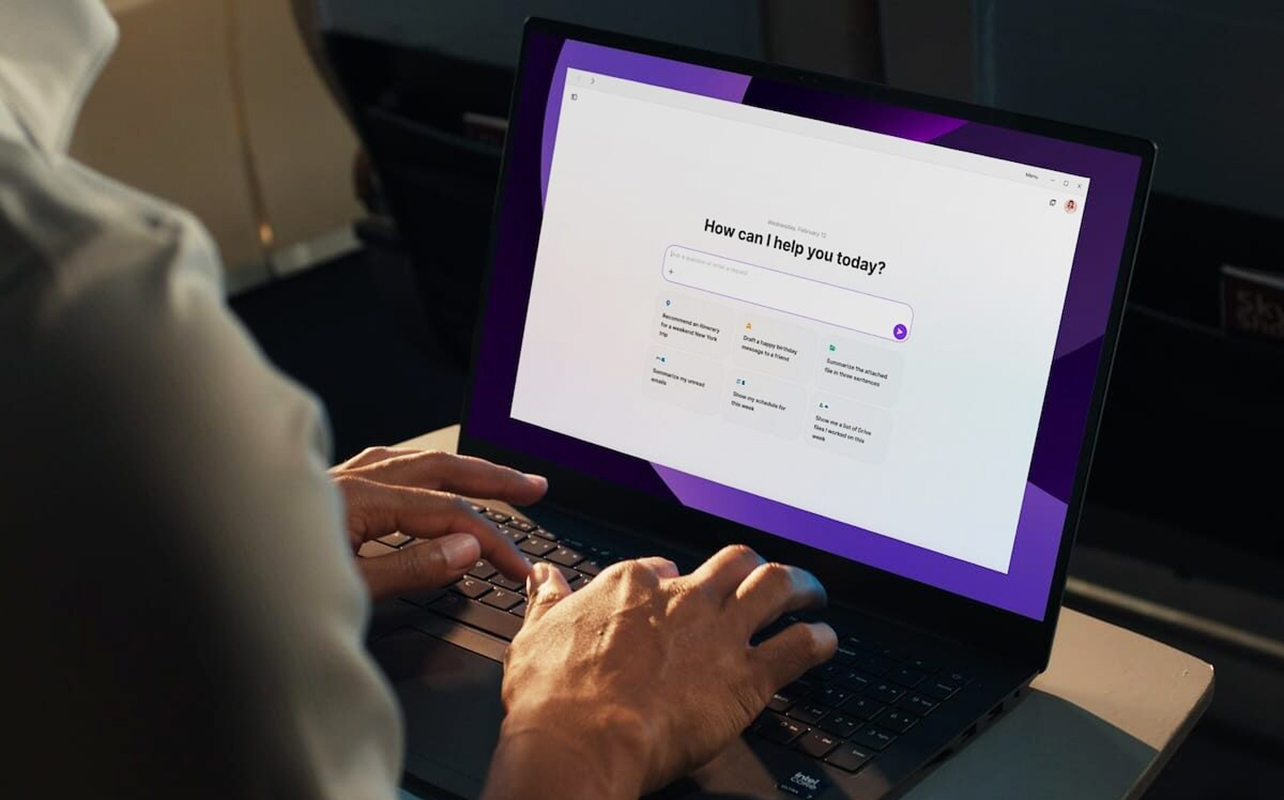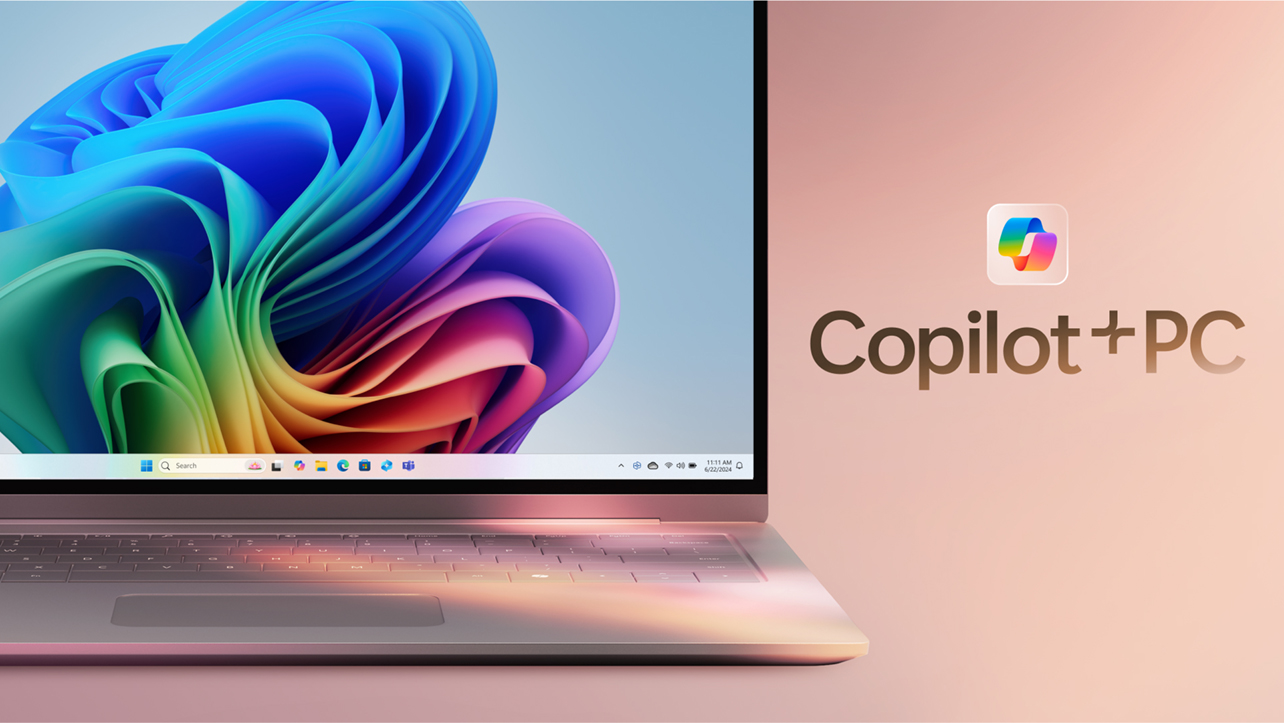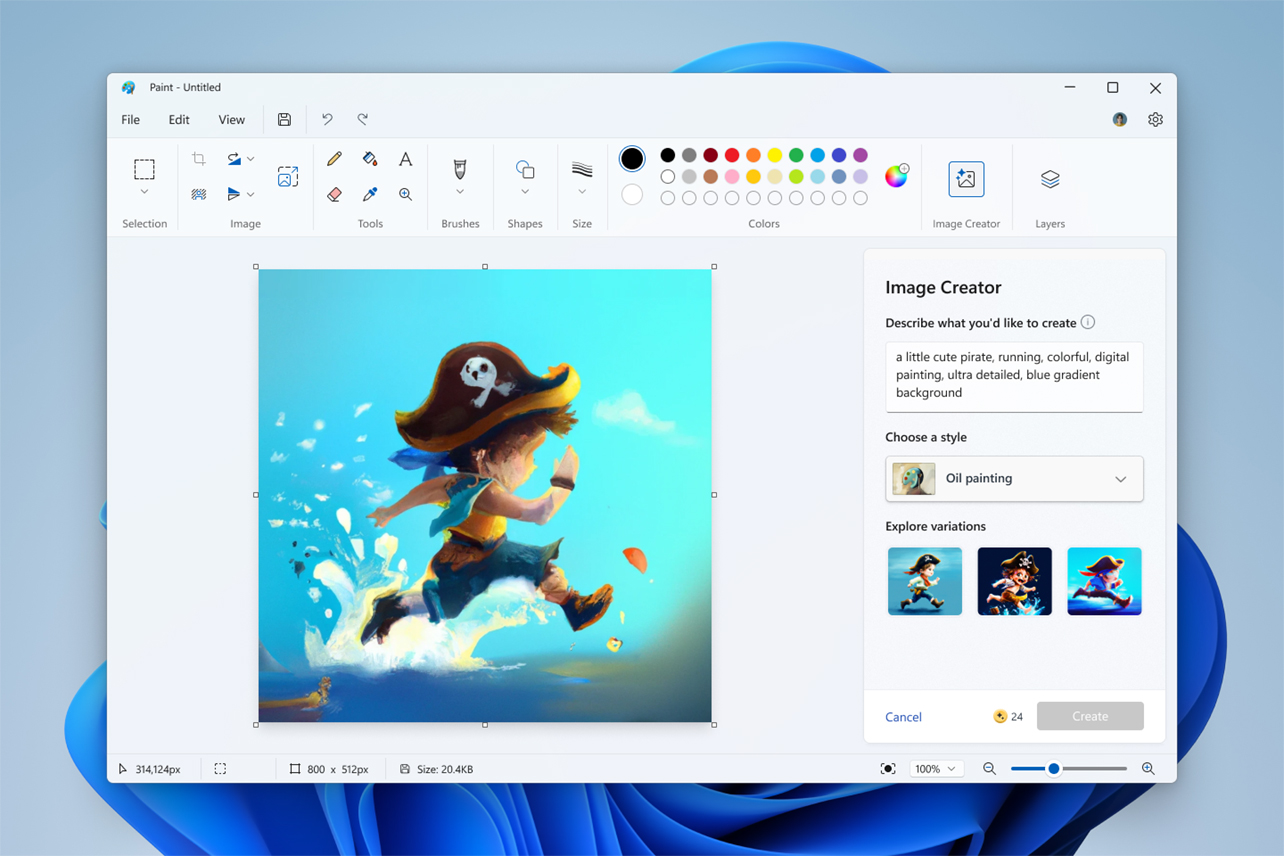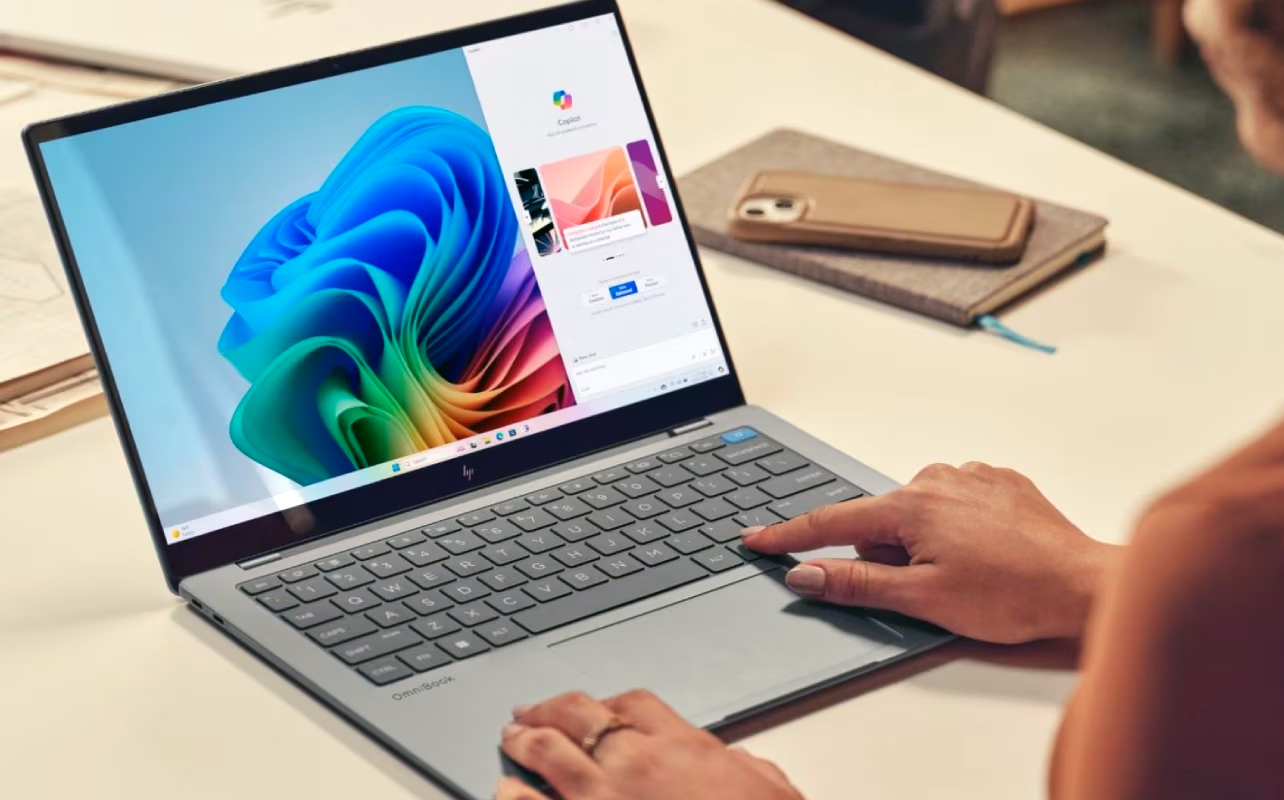
Artificial intelligence (AI) is transforming how we work, learn, and create—and laptops are a key driver in delivering that experience. This new generation of computers is being led by AI laptops, designed to harness the power of AI to improve speed, efficiency, and personalization. If you’re not sure what they are what it all means, we can walk you through it in this beginner-friendly guide to explain how AI laptops differ from traditional models and whether one might be right for you.
Introduction to AI laptops
AI laptops are modern computers equipped with built-in hardware and software designed to handle AI tasks. Unlike traditional laptops that rely mostly on CPUs and GPUs, AI laptops feature dedicated Neural Processing Units (NPUs) that optimize machine learning, personalization, and real-time processing. An NPU takes the load off the other two chips because these AI tasks run through it first rather than forcing the CPU and GPU to do it themselves. It leads to a more efficient allocation of resources between them.
AI is becoming a vital component of modern computing because it enables your laptop to understand context, make decisions faster, and improve over time. From enhancing productivity to tailoring your digital experience, AI laptops are poised to redefine how we interact with our devices.
How AI laptops differ from traditional laptops
AI laptops stand apart from traditional laptops in both design and functionality. In many ways, they look like any other laptop, except the key difference lies in how they process tasks and the types of experiences they enable.
Built-in AI hardware
The biggest differentiator for AI laptops off the bat is the fact they have an NPU. Unlike CPUs or GPUs, which are general-purpose processors, NPUs are specially designed to accelerate specific AI workloads such as image recognition, natural language processing, and predictive modeling.
For a deeper dive into this tech, check out our guide on Understanding NPUs: The AI Brain Inside Your Laptop.
Dedicated AI features vs. standard laptop functions
While traditional laptops rely more heavily on cloud services for advanced features, AI laptops bring those capabilities on-device. That means you can access useful AI-driven features without any connection to the internet, giving you quicker responses, real-time language translation, intelligent search, enhanced privacy, and noise cancellation.
Real-world examples
Examples of AI laptops include Microsoft’s new line of Copilot+ PCs and select Windows 11 laptops optimized for AI performance. Even laptops made by other manufacturers (that are not Microsoft) will market their AI laptops as Copilot+ PCs. These devices are capable of tasks like real-time image editing, smart suggestions while writing, and efficient multitasking without the need for external servers.
If you want to explore the latest innovations, visit our Copilot+ PC collection.

Key features of AI laptops
The standout features vary in ways that make them ideal for users who want more intuitive, powerful computing.
Copilot+ integration
Copilot+ is Microsoft’s newest AI assistant deeply integrated into select Windows 11 laptops. It acts as a smart companion, helping with everything from scheduling to writing emails to editing photos. A big part of what makes it feel seamless and effective is that Copilot+ periodically takes snapshots of what’s on your screen to make it all searchable later on. This way, you can ask it to pull up everything you read about a particular topic.
By understanding context and user behavior, Copilot+ enhances productivity, creativity, and personalization. This is why drafting a report or planning a trip can like it knows you when you see tailored suggestions in real time. Learn more by exploring Microsoft Surface laptops that support Copilot+ features.

On-device AI processing
Traditional AI tasks often depend on cloud computing. But AI laptops process data directly on the device through NPUs. This brings two major benefits:
- Speed: No lag caused by sending data back and forth to the cloud.
- Privacy: Sensitive information stays on your device.
This approach is not only more secure, but also ensures uninterrupted performance—even when offline. Curious about compatibility? Our Windows 11 compatibility guide can help you understand system requirements.
Smart features for everyday use
AI laptops simplify routine tasks through features like auto-organized folders, contextual reminders, and enhanced voice commands. They adapt to your preferences over time, making your experience more fluid and intuitive. Even better, they are agnostic to the apps you have installed and the files you’re storing on the laptop. Search is more precise because you can go as far as opening two documents at once to compare them. Or even summarize a report or article regardless of where it’s from.
Imagine your laptop suggesting files before a meeting, or adjusting screen brightness based on ambient light—it’s all part of the intelligent functionality these devices offer.
Benefits of choosing an AI laptop

AI laptops can bring a number of advantages, especially for those who use their devices for work, school, or creative projects.
| Pros | Details |
|---|---|
| Boosted productivity | Automate repetitive tasks, smart scheduling, real-time transcription |
| Creative advantages | AI-assisted image editing, design suggestions, smart video enhancements |
| Personalized user experience | Learns user habits to offer tailored suggestions and workflows |
| Faster performance | On-device processing reduces latency and speeds up complex operations |
| Enhanced privacy | Local data processing ensures sensitive info isn’t sent to the cloud |
Potential limitations to consider
While AI laptops are powerful, they may not be for everyone. It’s important to weigh the pros and cons before purchasing.
| Cons | Details |
| Higher costs | Premium pricing due to advanced hardware and features |
| Compatibility concerns | Older software may not take full advantage of AI capabilities |
| Unnecessary for basic use | May be overkill for casual users who only browse or stream |
Who should buy an AI laptop?
AI laptops are great for users who want a cutting-edge computing experience. Here are a few profiles that may benefit:
- Students: For AI-powered study aids, organization, and multitasking.
- Professionals: Great for real-time collaboration, scheduling, and writing tools.
- Creators: Ideal for video editing, graphic design, and content creation.
- Tech enthusiasts: Those who love experimenting with the latest AI features.
For a comparison of how these devices differ from the traditional ones, read AI Laptops vs. traditional laptops: what’s the difference?.
Explore AI laptops at Best Buy Canada
As AI laptops gain momentum, you’ll find a growing selection at Best Buy Canada. Whether you’re looking for a Microsoft Surface device or exploring the latest Copilot+ PCs, there’s something for everyone.
Browse these collections:
Is an AI laptop right for you?
AI laptops offer an exciting step forward in how we interact with technology. With built-in intelligence, real-time assistance, and personalizable features, these devices make computing more efficient and intuitive.
If you’re curious about this emerging tech and want to stay ahead of the curve, exploring AI laptops might be the next smart move. Head to Best Buy Canada to discover the latest laptops and MacBooks and choose the best one for your needs.
This article was drafted using AI technology and then reviewed, fact-checked, and revised by a member of our editorial team.





